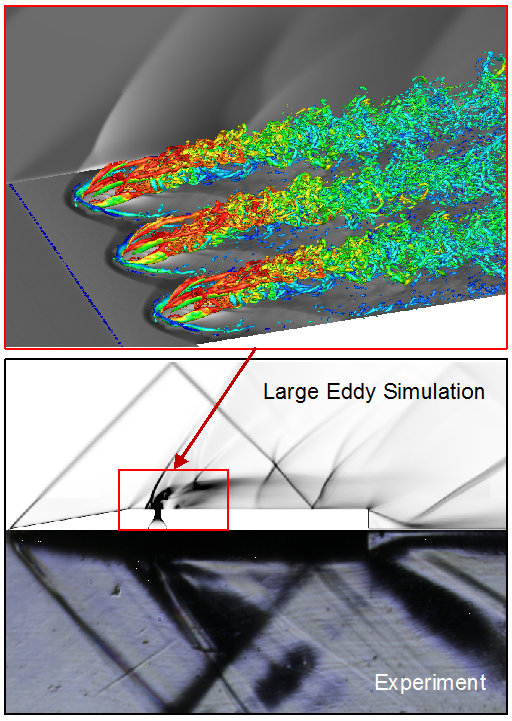Prof. Dr.-Ing. habil. Stefan Hickel
Affiliation: Delft University of Technology
Faculty of Aerospace Engineering
Professor of Computational Aerodynamics and Chair of Aerodynamics
Director of the Graduate School of Aerospace Engineering
Biography: Stefan Hickel is Professor of Computational Fluid Dynamics and Chair of Aerodynamics at the Faculty of Aerospace Engineering of TU Delft. He obtained his PhD from TU Munich for research into the design of consistent numerical methods and turbulence models for large-eddy simulation in 2008. He also habilitated himself at TU Munich with a thesis on ‘turbulence in complex fluids’ and was appointed full professor at TU Delft in 2015. Professor Hickel and his students develop models and methods for high-performance computational thermo-fluid dynamics with which they perform numerical experiments on a broad range of turbulent flows. Typical applications are, for example, waves and turbulence within Earth’s atmosphere, shock-turbulence interactions in supersonic aircraft and rockets, interactions of high-speed fluid flows with elastic structures such as aircraft wings, and turbulence in chemically reacting, multiphase and supercritical fluids, such as fuel injection and combustion in rocket or car engines. In addition, Professor Hickel serves the European Research Community on Flow, Turbulence and Combustion (ERCOFTAC) as Chairman of the Scientific Program Committee and TU Delft as Director of the Graduate School of Aerospace Engineering.
Title of talk: High-Fidelity Simulation of Compressible Turbulence and Multiphase Flows
Abstract: Computational Fluid Dynamics (CFD) is the branch of Computational Science and Engineering that deals with the numerical analysis, prediction and optimization of transport and conversion processes within fluids (i.e., non-solid matter, such as liquids, gases and plasmas) and the interaction of fluid flows with their surroundings. Most fluid flows are turbulent and mathematically described by high-dimensional chaotic multiscale systems, which makes accurate predictions very difficult and an active field of research. Major parts of the world’s largest supercomputers are currently used for turbulence research and for practical CFD simulations, which yield, for example, predictions of tomorrow’s weather or more efficient engineering designs. In this talk, we will give an overview on recent methods for high-speed turbulent flows and compressible multiphase flows and CFD applications in the field of aerospace engineering, and share some opinions on future directions and high-performance computing challenges for research and engineering.
